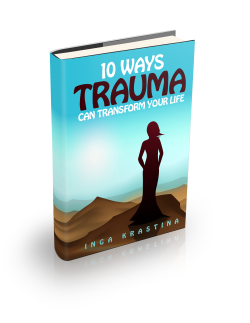‘Grief is not a disorder, a disease or a sign of weakness. It is an emotional, physical and spiritual necessity, the price you pay for love. The only cure for grief is to grieve’.
/Earl Grollman/
It was a beautiful sunny August morning. Despite the almost always present shadow of death with Edzus having brain tumour (it was half a year after his successful operation), he felt well, was happy and full of life and laughter. So was I. Till that shocking phone call. My Dad called and as I hadn’t heard from him for some time I was very pleased to hear his voice and joyfully said: ‘Hi, Dad’. His voice was extremely serious. I knew something was wrong. But nothing could prepare me for the shocking news that my twin brother, Andis, is dead. Shock, disbelief, excruciating pain, hopelessness, despair: ‘It can’t be true! How can it? What do I do now? What to do? I don’t need this on the top of what I’m already going through! It’s not true! What to do? What to do?’ My Dad said he didn’t know the details, but something to do with heart failure. I never knew my brother had any problems with heart… We rushed to his town as quickly as we could and there I found even more shocking news that he had committed suicide…
There is a strange stigma around suicide in society. As if it’s not as ‘noble’ death as a heart failure or any other illness; it’s as if it gives a message: ‘he/she was a failure’. Many people choose to avoid mentioning cause of their loved ones as suicide fearful that other people’s reaction would be – it’s their own fault that they couldn’t manage their lives properly. There were even times when those who committed suicide were only allowed to be buried beyond walls of the cemetery. There also is stigma around perceiving people who are closest to the ones who have committed suicide as ones that ‘did something wrong to cause this’.
 I believe with suicide of such respected and loved people as Robin Williams society is becoming more open to discuss these issues. And actually what needs to be opened is our hearts – for ourselves and others. Death is Death – no matter what is the cause and loss hurts terribly. Let me tell you this – it takes extreme courage to take your own life. How could we ever judge anyone who is in such despair as to take this radical step?
I believe with suicide of such respected and loved people as Robin Williams society is becoming more open to discuss these issues. And actually what needs to be opened is our hearts – for ourselves and others. Death is Death – no matter what is the cause and loss hurts terribly. Let me tell you this – it takes extreme courage to take your own life. How could we ever judge anyone who is in such despair as to take this radical step?
These reflections came long afterwards my initial shock. At the beginning there was a rollercoaster of emotions. Lots of anger – how did he dare to leave me when I am in constant danger of losing my son, and when I needed his help the most? How did he dare to die without saying goodbye? I never knew anything about his struggles as he was the most cheerful person, always supportive and understanding. I didn’t know about his inner unhappiness and inability to ask for help. I really didn’t want to grieve his death. It seemed grieving would take away the energy and time I needed to take care of my son. Of course, the pain I pushed down then, surfaced later and I had to process it anyway.
There is no right or wrong way to respond to shocking events, but there were some things I did quite intuitively that helped me to survive those first awful days. Based also on other people’s experiences and on studies about how we react to traumas here are few guidelines that might be useful:
- Shake it off – literally. The first thing we do is store the trauma in our bodies. To recharge that powerful energy it is worth doing something physical – shaking, trembling (it can happen quite naturally if we listen to our bodies – look at animals), jumping. Any physical activity might be useful – fast walk, jogging, swimming etc. This is not a fix for avoiding pain, but it can give us more energy and resources to process emotions and work through grief.
- Find your support system – family, friends, and professional help. Find somebody who’s taking care of you, helps with practical affairs. Avoid making big decisions at this time, do those later when you are more balanced and have come in terms with the loss.
- Allow yourself to feel the feelings and express them. This is often frowned upon in our culture. It’s not comfortable because we are not used to it and we have very rigid ideas about how to grieve. Cry as much, when and how you need to. Cry as if your life depends on it, because it might – your future life.
- Get sufficient rest. Take care of your needs. We have tendency to forget about ourselves, but it doesn’t serve anyone.
- Engage in activities, keep your daily routine going, but be aware of it not suppressing your need to express the feelings. It is easy to become too busy, drain pain in drinking or drugs, pretend that it isn’t so bad – all in the name of ‘overcoming loss’ but, in fact, stuffing it away.
- Write your feelings, thoughts, reflections.
 Enter your name and email in the form below to receive my Free e-book!
Enter your name and email in the form below to receive my Free e-book!
Speak Your Mind